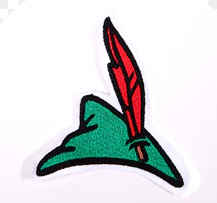Is using an html page’s onload event too early to check cookies?
I’m currently using cookies on my site to to count how many times a visitor has been there, and to try to have a reasonably useful “unique visitor” count. I’m having an intermittent problem. The way its supposed to work is if the visitor cookie is **not**is found**sometimes**sometimes
I have a hidden “diagnostic” window on may pages which I can bring up to see what’s going on, and it always shows that the visitor cookie is indeed present,,and has an expected count, even when the new visitor message was triggered. So I’m wondering now whether I should be delaying my cookie test until several seconds AFTER the body’s onload event?
6 Comments(s) ↴
 @daveyerwinMay 01.2019 — #
@daveyerwinMay 01.2019 — #Post the faulty code here or a link to the page.
 @PeterPan_321authorMay 01.2019 — #Uggg...
@PeterPan_321authorMay 01.2019 — #Uggg...[code=javascript]
<script>
if (readCookie(getCookieName(0)) == null) {
var ic=0;
var si = setInterval(function() {
toggleVis('introTxt', (++ic & 1)); // blink
if (ic > 50) { clearInterval(si); } // even== left on
}, 1000);
}
else document.getElementById('introTxt').innerHTML=
"<em>* Welcome Back! *</em>";
newVisitorMessage(0);
</script>
[/code]so toggleVis() is just a convenience function to make a DIV show up on the page
[code=javascript]
function toggleVis(id, state) {
try {
var aud = document.getElementById(id);
aud.style.visibility= (state) ? 'visible' :'hidden';
return aud;
}
catch(ignore) { return null} // continue regardless
}
[/code]also "readCookie()" is defined as...
[code=javascript]
// read a cookie, if found return its value, else null
function readCookie(cookieName)
{
var nameEQ = cookieName + "=";
var ca = document.cookie.split(';');
for(var i=0;i < ca.length;i++)
{
var c = ca[i];
while (c.charAt(0)==' ') c = c.substring(1,c.length);
if (c.indexOf(nameEQ) == 0)
{
return c.substring(nameEQ.length,c.length);
}
}
return null;
}
[/code]and getCookieName(0) is just...
[code=javascript]
function getCookieName(n) {
var cnames = ["pastVisitor"];
if (n >= cnames.length) return null;
return cnames[n];
}
[/code]There is also that newVisitorMessage() call that triggers whether or not to display a "new visitor" message, This one actually updates the cookie. For this, please trust that "myreport" is a call that stores diagnostic text for later debug display, sRefWindowNew() is a call that displays (in this case) the new visitor message.
[code=javascript]
function newVisitorMessage(bypass) {
var cookieName = getCookieName(0);
var expireDays = 365; // a year. or one day to test
var cval;
if (bypass == false) {
cval = readCookie(cookieName);
if (cval != null) {
myreport(cookieName + " cookie found. val= " + cval);
eraseCookie(cookieName);
cval = parseInt(cval); // in case it was a string
createCookie(cookieName, ++cval, setCookieTime(expireDays));
return true;
}
myreport(cookieName + " cookie not found");
createCookie(cookieName,"1", setCookieTime(expireDays));
var cval = readCookie(cookieName); // verify???
myreport("cookieName" + "= " + cval + " after set attempt");
}
sRefWindowNew("/scriptref/newvisitor.html", null);
}
// other dependent calls used in above...
// read a cookie, if found return its value, else null
function readCookie(cookieName)
{
var nameEQ = cookieName + "=";
var ca = document.cookie.split(';');
for(var i=0;i < ca.length;i++)
{
var c = ca[i];
while (c.charAt(0)==' ') c = c.substring(1,c.length);
if (c.indexOf(nameEQ) == 0)
{
return c.substring(nameEQ.length,c.length);
}
}
return null;
}
//erase cookie
function eraseCookie(cookieName)
{
if (readCookie(cookieName) != null)
createCookie(cookieName,"",-1);
}
// create a cookie
function createCookie(cookieName,value, timeInSeconds) {
var expires ="";
if (timeInSeconds)
{
var date = new Date();
date.setTime(date.getTime()+timeInSeconds*1000);
expires = "; expires="+date.toGMTString();
}
document.cookie = cookieName+"="+value+expires+"; path=/";
}
[/code]If it matters, the website is here...
When it fails, both the "welcome back" text change AND the suppression of the new visitor message fails. But again, it only happens sometimes... usually after a day, when the browser has been closed and re-opened. Doesn't make sense because I've checked the cookies in my browser, and their expiration dates are indeed a year in the future. I should hasten to point out that I don't want to burden anyone with analyzing all my calls. I mainly want to know if in principal, I should be waiting a little while after onLoad() completes before checking cookies.
 @daveyerwinMay 01.2019 — #
@daveyerwinMay 01.2019 — #I found the content enjoyable
I was unable to reproduce the anomaly
I did confirm that the cookie expires after one year
Is there a chance that the cookie is being deleted by your browser ?
Are you using more than one browser to view the page ?
the cookie will not be available to other browsers on your machine until it is created by
that browser
and
while this is unrelated I will point out that ...
function getCookieName(n) {
var cnames = ["pastVisitor"];
if (n >= cnames.length) return null;
return cnames[n];
}
is equivalent to ...
function getCookieName(n) {
return n?null:"pastVisitor";
}
 @PeterPan_321authorMay 01.2019 — #
@PeterPan_321authorMay 01.2019 — #Well thanks... it is ALWAYS good to know other's are not seeing the problem I see, and I do appreciate you're sanity checking my code.. Yes that getCookieName() is kind of temporary and incomplete... I had intended to populate the array with other cookie names, but may not need to. Yes... when one fails, the other fails. But as i mentioned, I have a "hidden" diagnostic on the page (scroll all the way to the bottom, and find the little ""B" all the way at the lower right, and click it 3 times. My diagnostic window pops up, and one of the first things it does is display ALL cookies, including a session cookie I use for a unique visitor count, along with the "pastVisitor" cookie. Since anytime I find that cookie I destroy it and then recreate it after incrementing its count, its doubly puzzling when the initial cookie action fails, and then I activate my diag, and it shows the "pastVisitor" cookie with a positive value >= 2, meaning there is no reason initial visitor message action should have failed. All i could think of was the fact that the diag, being launched manually, is definitely checking cookies well after page load. So I guess I'll try to move all the initial cookie actions to happen after my setInterval call fires. I know that's the same as a blind many throwing darts, but its the only thing i can think of to try.
The mysteries of browsers!
 @KxmodeMay 02.2019 — #If you're not too terribly opposed to jQuery, I highly recommend using that to give you more control over when and where to check things. For example, the following will wait until the entire page is fully rendered before it will execute the script.
@KxmodeMay 02.2019 — #If you're not too terribly opposed to jQuery, I highly recommend using that to give you more control over when and where to check things. For example, the following will wait until the entire page is fully rendered before it will execute the script.<i>
</i>$(window).on("load", function() {
// do something
});
Note: the above is for the latest jQuery syntax I believe post 2.X. For other versions the code looks like:
<i>
</i>$(window).load(function() {
// do something
});
If you grab the jQuery Cookies addon at
<i>
</i>if ($.cookie("cookiename")) {
// do something
}
So putting it all together using the latest syntax:
<i>
</i>$(window).on("load", function() { // Wait until the page is fully loaded...
if ($.cookie("cookiename")) { // If a cookie called cookiename exists and it has a value...
// do something
}
});
Given that jQuery and jQuery Cookie are browser agnostic it tends to be a good alternative to pure JavaScript. That's my humble opinion of course. 😅
 @PeterPan_321authorMay 02.2019 — #
@PeterPan_321authorMay 02.2019 — #But what might be more relevent to me is that I have been doing my "cookie" maintenance directly by referencing a function in my <body onload="myfunction()". Would it be better to assign my cookie functions to window.onload = function() { ??? If so, should I do that within the function I'm tying to < body onload= ?. I don't know. What are the diffecces between <body onload , window.onload, and document.onload?